The Mojaloop Foundation is proud to contribute to the effort to make cross-border payments faster, cheaper, and more inclusive, to benefit millions the world over. To that end, I’m thrilled to share that Mojaloop has been named a winner in the recently held ISO 20022 hackathon, sponsored by BIS Innovation and SWIFT! We were recognized for our solution that connects formal financial services that use ISO 20022 to networks powered by Mojaloop in the last-mile. The hackathon brought together 260 participants from more than 80 countries and resulted in 45 high-quality proposals, which were evaluated by a panel of judges from central banks, industry, and payment system operators.
Making Cross-Border Payments More Inclusive
Mojaloop’s proposal was chosen in great part for the impact it could have on the inclusiveness of cross-border payments.
There is a vibrant global diaspora who regularly send money home, as well as many donor agencies who remit social payments, but the last mile is the longest mile for those millions of people in the world who don’t have access to traditional banking services: 80% of the cost of cross-border payments is in the last mile delivery of money.
However, today there are numerous institutions serving customers in the last mile. The mobile money industry sprang into life over 10 years ago focused on delivering efficient digital low cost accounts to those unable to access formal financial services; the SACCO and Microfinance industry are on a digital transformation trajectory too.
We believe that the fragmentation created by partially interoperable arrangements that are not scalable nor efficient due to the nature of how they have evolved leads to poor customer experience, high costs that can often be passed on to the customer, and delays in receiving money when things go wrong.
We believe that if Banks, Mobile Money Operators, Payment Service Providers, and Microfinance Institutions can connect to the same rails and the same API design, it can create a vastly improved end-user experience, and as a consequence improve customer adoption and reduce trust problems significantly, enhancing digital inclusion at scale where today cash is king.
ISO 20022 has emerged as a global standard between banking systems for payment messages that allows for more information to travel alongside the payment.
The hackathon, presented by the BIS Innovation Hub in Singapore in partnership with SWIFT, focused on using ISO 20022 messaging and modern APIs to build inclusive cross-border payment processes.
Our submission demonstrated how using ISO 20022 messages and the Mojaloop APIs made it possible to connect traditional market participants within many different account holding institutions in the developing world’s financial ecosystem. To do this, we mapped the Mojaloop three-step transaction pattern (Disovery – Agreement – Transfer) onto ISO 20022 messages and leveraged the Interledger Protocol to include end-to-end data elements that connect the disparate systems.
The Mojaloop three-step transaction pattern allows the Sending Institution to:
- Discover if the target customer identifier is linked to a valid customer account that is allowed to accept funds cross-border, according to local policies.
- Agree the terms of the payment with the financial institution serving that customer. Terms include agreement of any fees applicable between institutions if the transfer proceeds, as well as checking that policies on transaction volume, velocity, and balance for the account holder will not be broken in accepting the transfer. Once all checks are complete, the recipient institution sends an end-to-end data element called a payment condition as part of the final instruction.
- Execute the Transfer, with the Interledger fufillment data element as a cryptographically verifiable signal that can be relied upon by intermediaries and demonstrates that the customer has been credited and funds should be settled.
Mojaloop uses the Interledger Protocol to facilitate straight-through processing and reduces the volume of manual intervention for reconciliation and dispute resolution. It avoids the errors that result in delays and associated costs.
By combining Mojaloop and ISO 20022 messaging, the overall solution offers:
- A way for the banked and those using less formal financial services such as mobile money to exchange funds safely, quickly, and securely, even across borders, fully compliant to local policy decisions as part of the transaction agreement protocol.
- Confidence that payments are being sent to the intended recipient and the funds are being cleared to them swiftly.
- Certainty for all financial institutions of the finality of payment and settlement obligations.
The hackathon demonstrated extension of the reach of the Interledger Protocol into the traditional payment market infrastructure via ISO 20022 Interledger data element additions, so that they can be exchanged end-to-end. It also further expands the use of multiple ISO 20022 messages to facilitate a complete three-step transaction, providing the confidence that payments are received by the intended recipient.
The team is keen to propose this as a standard part of the Mojaloop messaging protocol and will discuss this in more detail as part of the April Community Event.
A Winning Team
Our belief is that the rules and the rails for digital payments should be created in a collaborative, not a competitive, space and that interoperability between all digital financial service providers through a low cost, instant payment scheme is the path to sustainable financial inclusion.
The Mojaloop submission was prepared by a diverse group of participants, and we want to sincerely thank and applaud them for their efforts to help improve the lives of the underserved around the world. Contributors include Vijay Kumar, Sam Kummary, and Miguel de Barros of ModusBox; Donovan Changfoot and Adrian Hope-Bailie of Coil; and Lewis Daly at Crosslake Technologies. The team lead was Michael Richards, from ModusBox. Thank you all for your efforts, and congratulations on this achievement!
Read more about the hackathon and all the winners.
Connect with us here to join the Mojaloop community and learn more about how you can make an impact. And be sure to follow us on Twitter, LinkedIn and Facebook for all the latest.
About the Author
Lesley-Ann Vaughan, Director of Product Strategy, Mojaloop Foundation

